What Does Coconut Water Taste Like? Tropical Sips Explained
Coconut water has become a popular beverage among health enthusiasts and tropical drink lovers worldwide.
Refreshing and naturally hydrating, this clear liquid from young green coconuts offers more than just a simple thirst quencher.
Curious individuals often wonder about its unique flavor profile and why it has gained such widespread popularity.
The taste might surprise you with its subtle complexity and unexpected characteristics.
Nutritionists and food experts have different perspectives on its palatability and potential health benefits.
Some people find it instantly appealing, while others need time to appreciate its distinctive essence.
Your curiosity about coconut water's taste is about to be satisfied through this comprehensive guide that breaks down its sensory experience.
Key Things to Know About Coconut Water
Coconut water is the clear liquid found inside a coconut. As the coconut gets older, this liquid slowly turns into the soft white flesh, but you’ll still find some coconut water even in mature coconuts.
It’s important to remember that coconut water and coconut milk aren’t the same thing, and pressed coconut water is different too. Coconut water is made up of more than 95% water and is packed with electrolytes, vitamins, and minerals, making it a popular drink in many tropical places.
People have been drinking it for centuries, and in some cultures, it’s even been used for basic medical treatments like helping with dehydration or diarrhea. For serious rehydration, though, drinks like Pedialyte are better because they’re specially made to quickly replace lost fluids and minerals.
The Flavor of Coconut Water
Coconut water has a much lighter and more subtle taste than coconut flesh or coconut milk. It’s not as sweet or creamy as you might expect, instead, it’s gently sweet with a touch of saltiness and a hint of nuttiness.
The flavor is very refreshing and not overpowering, making it a great drink for anyone who doesn’t like super-sweet beverages. Even though it doesn’t have much sugar, coconut water is still satisfying and quenches your thirst right away.
The taste of coconut water can also change based on the type of coconut, where it was grown, the weather, and even how old the coconut is. Younger coconuts may have water that tastes a little sour, while mature ones are usually milder and smoother.
Overall, coconut water is a light and pleasant drink that’s perfect for staying hydrated.
How to Make Coconut Water Taste Better
If plain coconut water isn’t your favorite, you can easily jazz it up with some tasty recipes. Here are a few fun ways to make coconut water more exciting:
Smoothie With Coconut Water
Coconut water adds a light touch to smoothies made with veggies or fruits. Its gentle flavor slides into your drink without messing up the original taste.
This mix brings helpful nutrients to your daily diet.
Coconut Water Ice Pops
Coconut fruit popsicles offer a quick energy kick. Mix coconut water with tasty fruits for a delightful treat.
Cold treats sliding down your throat bring instant cooling comfort!
Lemonade Made With Coconut Water
Lemon juice brings amazing flavor to coconut water. Sour notes mix perfectly with the gentle, sweet taste of coconut water, making a super refreshing drink!
Spoiled Coconut Water Taste Signs
Fresh coconut water tastes light, sweet, and a bit nutty. If the flavor is off or tastes sour, it’s a sign the coconut water has gone bad and should not be consumed.
Always check the taste and smell before drinking to make sure it’s still fresh and safe to enjoy:
Strange Coconut Water Flavor
Coconut water starts tasting sour when it goes bad. One sip reveals an intense sourness that signals spoilage.
Sometimes people mistake sourness for something else. Two reasons explain why coconut water might taste sour: spoilage or young water.
Sour tastes differ between spoiled and young coconut water. Young water keeps a fresh feeling with each sip.
Spoiled water develops fermented or vinegar-like sugars that change its flavor completely.
Spotting bad coconut water is straightforward.
Spoiled water does more than taste sour. Rancid undertones and weird flavors indicate it has gone bad.
Throwing out coconut water with these signs is the smartest choice.
More Signs Coconut Water Is Bad
Signs that show coconut water has gone bad:
Smell Check
You smell something strong and unpleasant when opening a coconut water bottle. Instead of the normal coconut fragrance, this stench means bad news.
Bacteria have taken over, causing the drink to go bad.
Color Check
Coconut water sometimes changes color to pink for different reasons, and this doesn't always mean the drink has gone bad. Soft pink shades can happen naturally, but when the liquid looks very dark or extremely bright pink or brown, it signals the water has started to spoil and might taste terrible.
Bubbles Or Fizz In Coconut Water
White or yellow foams floating on coconut water's surface show carbonation. Small bubbles mean something went wrong with the drink.
These marks signal serious problems for your beverage.
The Consistency
Coconut water should flow smoothly like plain water when you pour it out. Thick or sticky liquid means something has gone wrong with the drink.
Signs of spoilage include unusual texture that stops the water from moving normally in the cup.
What If You Drink Bad Coconut Water?
Coconut water that has gone bad won't immediately harm you with dangerous bacteria. Days can pass before the drink becomes truly unsafe to drink, and it won't kill you instantly.
Still, spoiled coconut water tastes terrible and can cause health problems if you keep drinking it. People might face uncomfortable issues like bloating, stomach troubles, or more serious sickness.
Best to throw out the drink if you notice any signs it has turned bad.
Storing Coconut Water for Freshness
It’s not always clear how to keep coconut water tasting fresh, but with a few easy tips, you can make it last longer and stay delicious:
How Long Coconut Water Lasts
Coconut water quickly loses its freshness after opening. Drinking it right away helps you enjoy the best taste and quality during the day.
Leftover coconut water keeps well in the refrigerator. You can store it safely and drink within 3-5 days before it goes bad.
Canned coconut water lasts longer due to added preservatives. It stays good for 4-6 weeks when stored at 40 degrees Fahrenheit.
How To Keep Coconut Water Fresh At Home
You can use smart ways to store coconut water and keep it fresh for longer periods.
Unopened Coconut Water
Fresh coconut water inside its natural shell stays good at room temperature for one week. Cold storage helps keep coconut water tasty for two to three weeks when chilled between 35 and 40 degrees Fahrenheit.
Packaged coconut water in cans or bottles can last much longer past its printed date. Commercial versions with preservatives stay drinkable for nine to twelve months when refrigerated without concerns about going bad.
Opened Coconut Water
After breaking open a coconut fruit and removing its water, you should place it in the refrigerator right away. Leaving coconut water outside could lead to potential health risks, so it's safer to discard it if you forget.
Regular fresh coconut water stays good inside the fridge for 3 to 5 days when stored properly. Canned coconut water with added preservatives might have different storage guidelines.
Warning: Professionals sometimes use deep cooling or sodium metabisulfite methods for coconut water preservation. Home storage methods are more limited and straightforward.
Top Coconut Water Brands Today
There are lots of coconut water brands to choose from, and you can easily find them in stores or shop online. Here are some popular options you might like:
ZICO Pure Coconut Water
Zico coconut water comes with official organic certification from USDA. People enjoy its natural light sweetness without extra sugar.
Water helps keep you hydrated through its pure electrolytes. Multiple size options make it easy to pick what works best for you.
Vita Coco Organic Coconut Water
Coconut water from Vita Coco comes in easy bottles so people can drink it anywhere. This clean organic drink passes vegan and Kosher checks, packed with helpful minerals and vitamins that support wellness.
Taste Nirvana Premium Coconut Water
Sweet coconut water fills Taste Nirvana bottles with natural goodness. Sippers enjoy premium quality and pure refreshment.
Product details include:
Amy & Brian Classic Coconut Water
Amy & Brian offer you 4 tasty coconut water flavors that naturally taste sweet. Sourced from Thailand's lush tropical regions, these coconuts deliver pure, rich flavor right from nature's best green coconuts.
Harvest Bay Pure Coconut Water
Coconut water from Thailand offers pure goodness with minimal sugar and calories. Natural sweetness flows through each sip without added sugar.
Harvest Bay Coconut Water delivers electrolytes that make it smarter than typical soft drinks.
Coconut Water vs. Coconut Milk
Coconut water and coconut milk both come from coconuts and add great flavor to food and drinks, but they are not the same. Here are some simple ways they are different:
What It’s Like
Coconut water comes straight from inside coconuts without any extra work. It sits naturally in young coconuts.
Coconut water changes as the coconut grows older, slowly turning into solid coconut meat.
Coconut water happens on its own, but coconut milk needs more steps to become ready.
Makers squeeze coconut meat really hard to pull out thick, creamy liquid. This pressing creates the rich milk people enjoy.
Coconut milk starts its journey on farms and ends up in store cans.
Taste, Feel & Color
Coconut water tastes mild with just a hint of sweetness. Its flavor feels slightly nutty and salty, sometimes turning sour when the coconut is young.
Coconut milk differs completely with its rich sweetness, carrying a floral hint and strong nutty notes.
Texture shows clear differences between these two liquids.
Coconut milk looks thick and dense, sporting a creamy white color. Coconut water matches regular water's thin consistency, appearing transparent with subtle coconut-colored ripples.
Ways To Use In Cooking
Coconut water quenches thirst straight from the fruit and helps restore body minerals. Chefs also use coconut in cooking to add more sweetness to meals.
Coconut milk serves as an alternative to cow milk in recipes. Cooks use it to thicken sauces and create traditional dishes in Indian and Southeast Asian cooking.
Its natural flavor and rich texture make food taste better. People enjoy coconut milk in different drinks and sweet treats.
What’s Inside Nutritionally
Coconut water and coconut milk are two distinct products with different nutritional makeups. Coconut water mostly contains water and carbs, with almost zero fat and protein.
Coconut milk, on the other hand, has much less water and focuses more on fat content.
While most minerals and vitamins are similar in both products, coconut milk packs significantly more calories - about 12 times higher than coconut water.
Both coconut water and coconut milk share key nutrients including:
People with heart issues, high cholesterol, or weight concerns should be cautious about coconut milk due to its high fat and calorie levels.
Smart Tips for Drinking Coconut Water
Coconut water is healthy, but it’s best to enjoy it in moderation. Here are some easy tips to help you get the most from coconut water:
Nutrition Facts of Coconut Water
A cup of coconut water (about 240 ml) has only 60 calories, with 15 grams of carbs and 8 grams of sugar. It also gives you a bit of calcium, magnesium, phosphorus, and is packed with potassium, making up 15% of your daily needs.
Coconut water is a healthier choice than many sodas or fruit juices because it’s lower in sugar and doesn’t have added colors or chemicals. It’s loaded with natural electrolytes like sodium and potassium, which help keep you hydrated and refreshed.
Young coconuts are sweeter and have more phenols, while mature coconuts offer more protein and a higher pH level. The minerals in coconut water also change as the coconut ages, so flavor and nutrition can differ depending on which coconut you choose.
How Coconut Water Helps You
Drinking fresh coconut water is a great way to stay cool on hot days, but it also does much more for your health. If you enjoy it often, you’ll get these benefits:
Rehydrating After Working Out
Coconut water works wonders as a sports drink replacement. Natural electrolytes like sodium, potassium, and magnesium help restore body fluids after working out.
This helps stop uncomfortable feelings like nausea and bloating that can happen during physical activities.
Gives You More Energy
Coconut water helps boost energy levels. Its nutrients pack a powerful punch for health.
Packed inside this refreshing drink are important minerals like iron, selenium, calcium, sodium, phosphorus, and magnesium that support your body's wellness.
Good For Heart Health
Medical studies show coconut water helps lower risks of heart problems. Lauric acid and potassium in this drink work well for people struggling with high blood pressure.
Helps Your Body Fight Illness
Coconut water boosts your body's ability to fight off sickness. Key minerals like chloride, iron, potassium, and calcium work together to stop harmful germs from taking hold and multiplying.
Helps Digestion Work Better
Fresh coconut water supports healthy digestion when you drink it early in the day. Lauric acid inside this natural beverage changes to monolaurin.
Coconut water helps balance good bacteria and stomach acid effectively.
Fights Cell Damage
Coconut water helps protect your body from damage caused by harmful molecules made during normal cell activities. Natural compounds in coconut water can stop these molecules from hurting your health.
Research shows coconut water can lower stress inside your cells, calm down dangerous molecules, and help control blood pressure, fat levels, and sugar in your blood.
Supports Healthy Kidneys
Coconut water brings natural health benefits as a water replacement. This drink helps flush out body toxins through its natural cleansing properties.
Regular sips can support kidney health and block stone formation. Clearing urinary paths becomes easier with coconut water's special characteristics.
People seeking a healthy drink option can rely on this refreshing beverage for wellness support.
Helps With Weight Control
Coconut water offers health benefits many people want. Packed with natural electrolytes, this drink supports weight loss goals.
Special fats called triglycerides boost energy and reduce hunger feelings. Its low-calorie profile makes coconut water a smart choice for anyone watching their diet.
Drinking this refreshing liquid helps you stay hydrated without adding extra calories.
Helps Your Skin Stay Healthy
Fresh coconut water holds special compounds called cytokinins and antioxidants. These compounds help stop skin from getting older, keep skin balance steady, and lock in skin moisture.
Learn more about how coconut water helps health and ways to enjoy it!
What to Watch Out for With Coconut Water
Coconut water is healthy in moderation, but having too much isn’t good for you. Here are a few reasons to be careful:
Enjoy coconut water, but try not to overdo it so you can avoid these problems.
Coconut Water Taste and FAQ Guide
1. Can I drink coconut water straight from the coconut?
Yes! Coconut water is naturally clean and ready to drink as soon as you crack open the coconut. There’s no need to filter or boil it.
2. Why does coconut water sometimes turn pink?
If you notice your coconut water turning pink, don’t worry—it’s a natural reaction. When coconut water is exposed to air, enzymes inside can cause the color to change from clear to pink over time. It’s still safe to drink.
3. Is it okay to drink coconut water every day?
Drinking coconut water daily is generally safe for most people. It’s low in calories and a good source of electrolytes. Just stick to a moderate amount, like a small glass a day, to avoid drinking too much.
4. Can coconut water help with weight loss?
Coconut water is low in calories and can be a smart swap for sugary drinks. It also has enzymes that may help with digestion, but remember—no drink alone will cause weight loss. Healthy habits matter most.
5. Does coconut water make you go to the bathroom more?
Most people can drink coconut water with no issues, but having a lot at once might have a mild laxative effect for some. If you’re sensitive, start with a small serving.
6. Is coconut water better than regular water?
Both coconut water and plain water are great for staying hydrated. Coconut water has more potassium and natural sugars, but regular water is always the best for hydration with zero calories.
7. What is the best way to store coconut water?
Keep coconut water in the fridge after opening, and drink it within a couple of days for the best taste and freshness.
8. Is flavored coconut water real coconut water?
Many brands add fruit flavors or sweeteners to coconut water. Always check the label if you want pure coconut water with no extra ingredients.
9. Can kids and pregnant women drink coconut water?
Yes, coconut water is usually safe for both kids and pregnant women. It’s a gentle, refreshing drink that can help with hydration.
10. Are there health benefits to drinking coconut water?
Coconut water has natural electrolytes like potassium and magnesium, which are good for your body—especially after exercise or on a hot day.
Stay Hydrated With Coconut Water
After reading this, you now know what coconut water tastes like and why it’s a healthy, refreshing choice for most people. To get the best results, enjoy coconut water in amounts suggested by experts.
If you found this helpful, feel free to share so others can also learn about this natural and tasty drink.

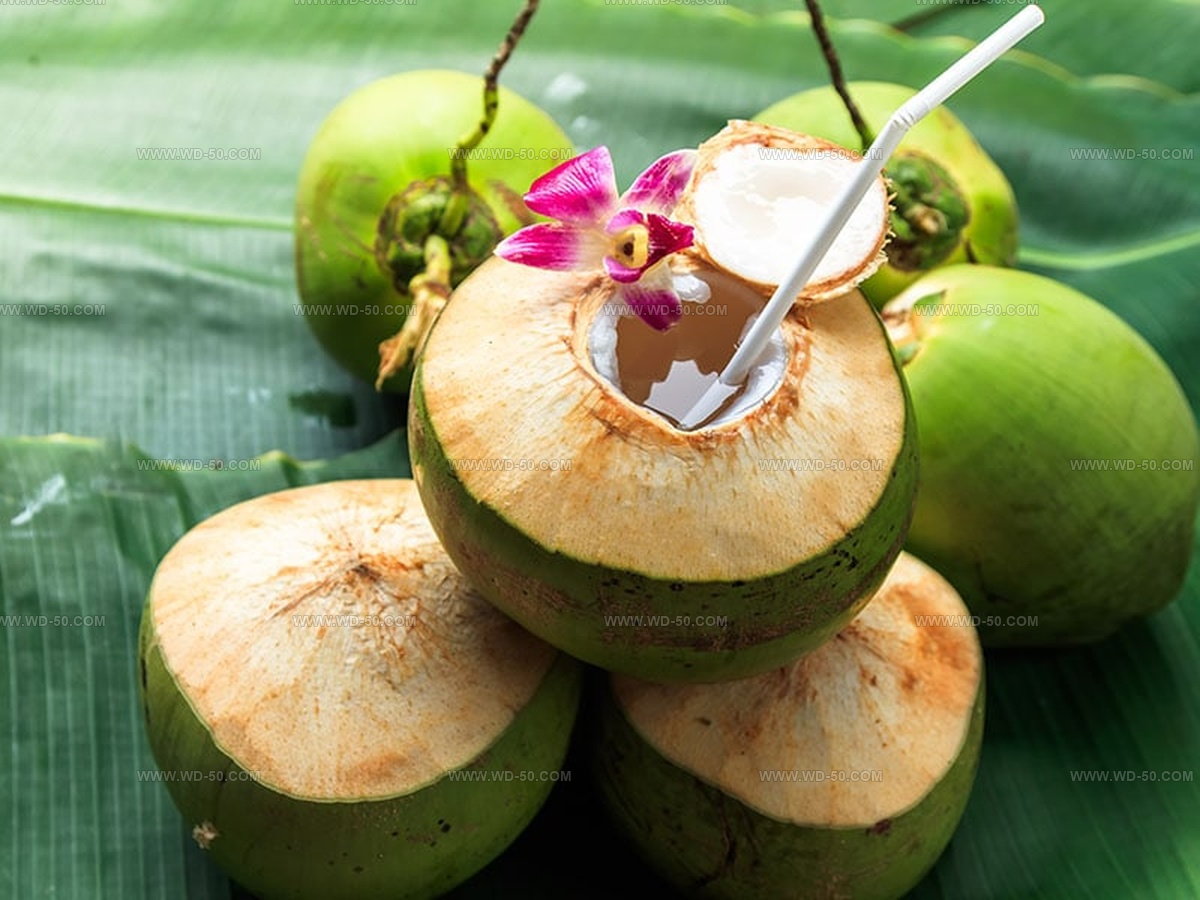
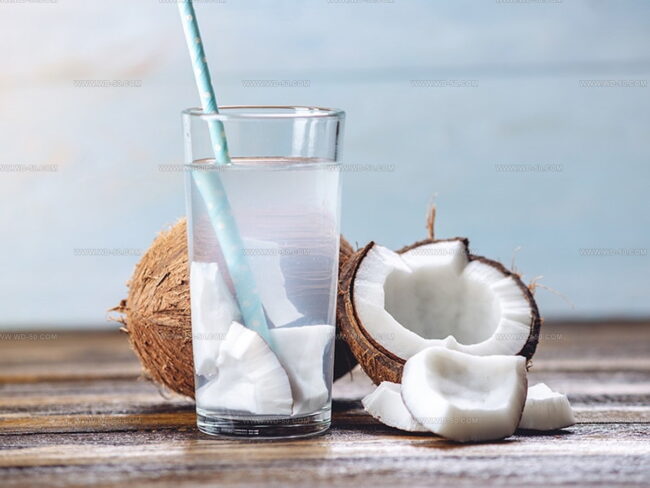
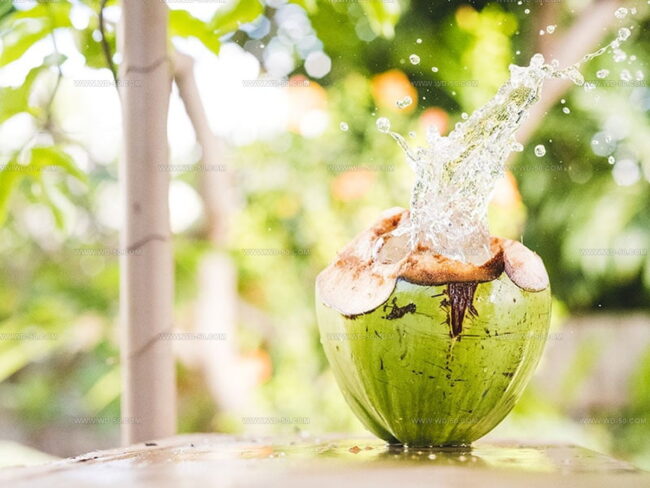
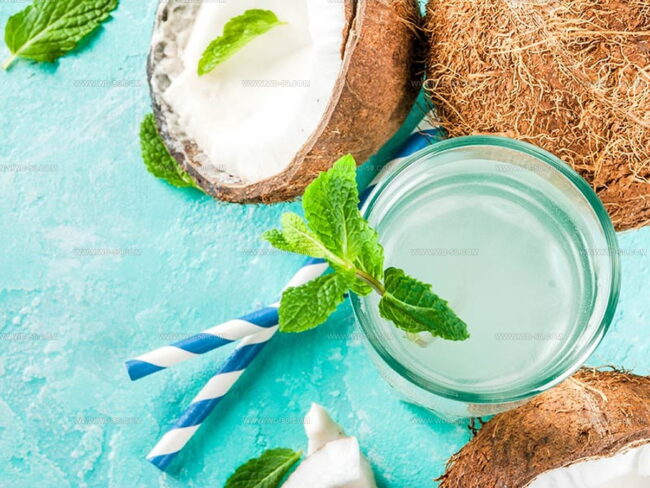
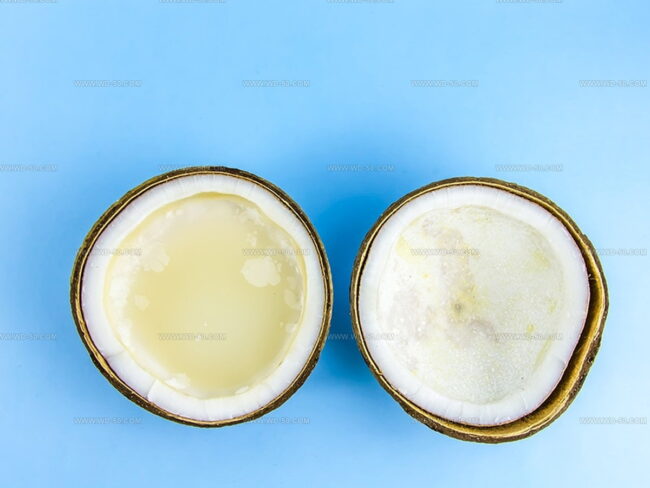
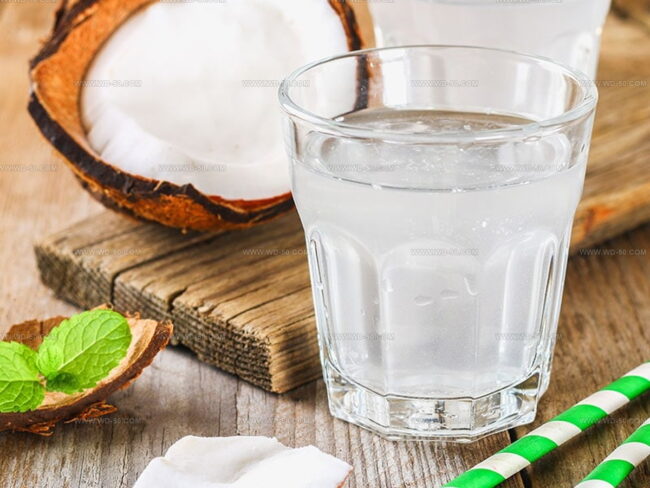
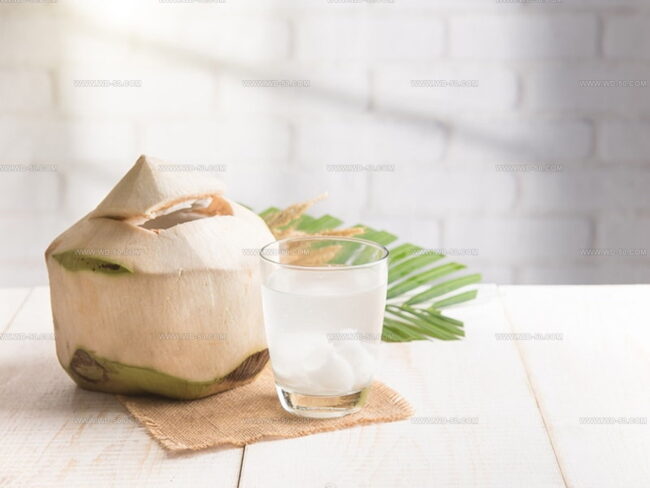
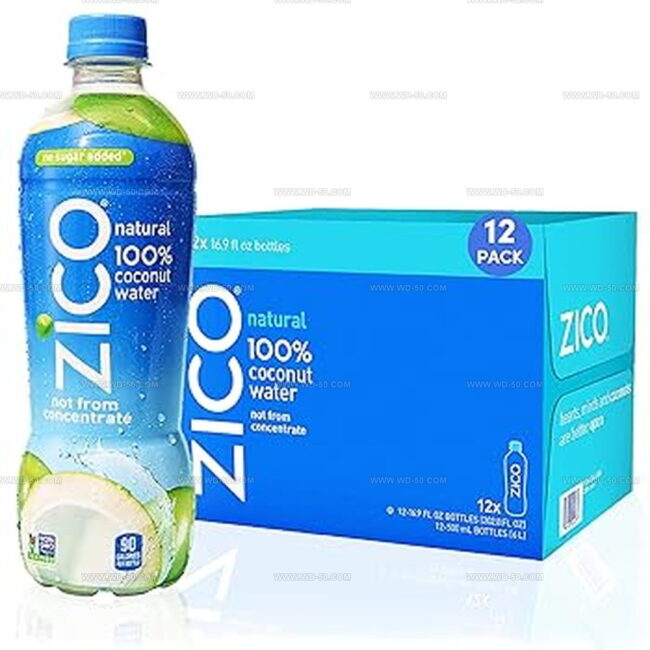
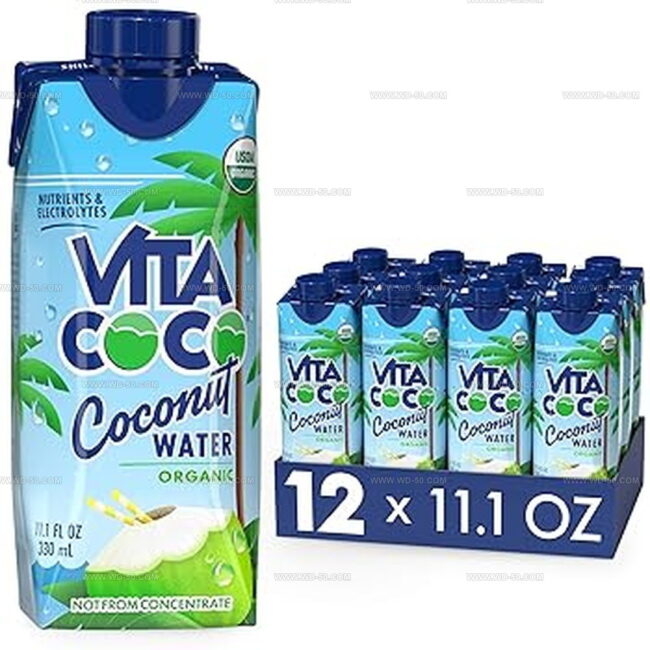
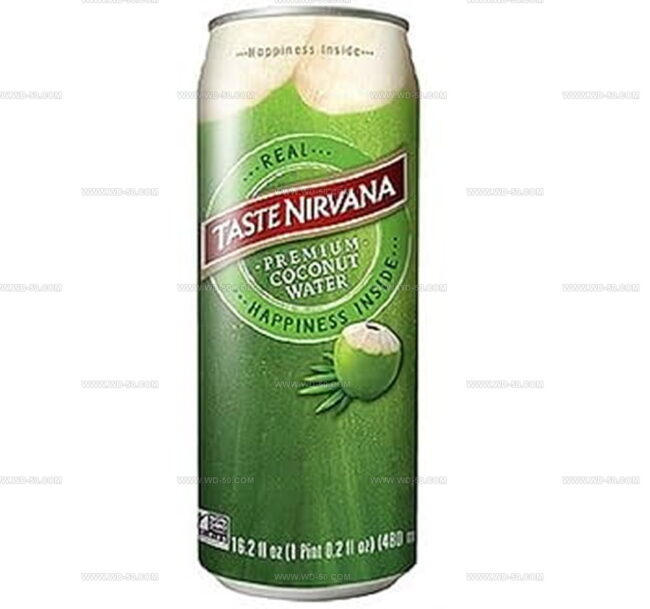
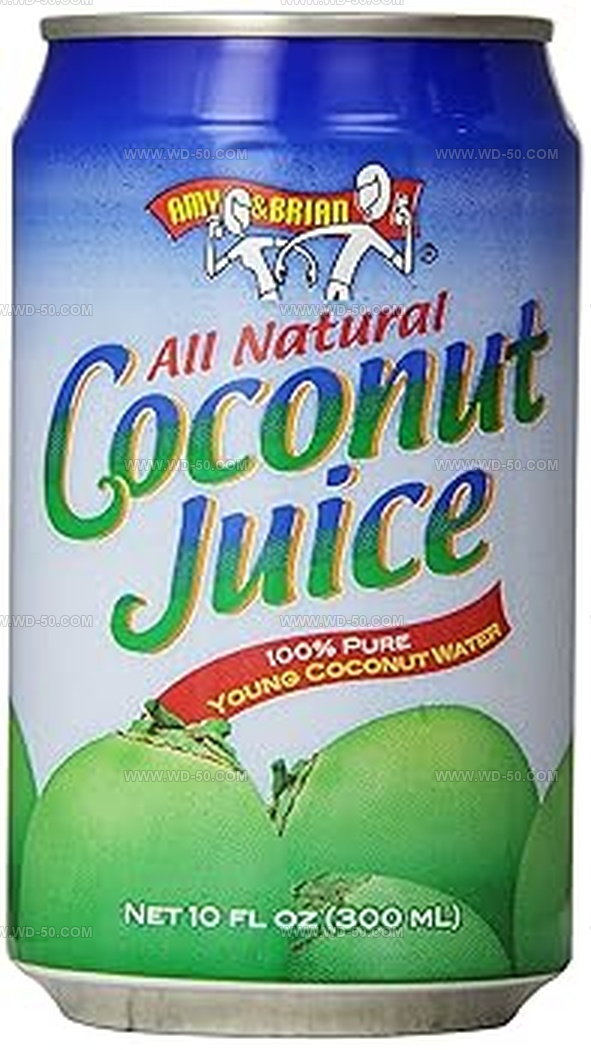
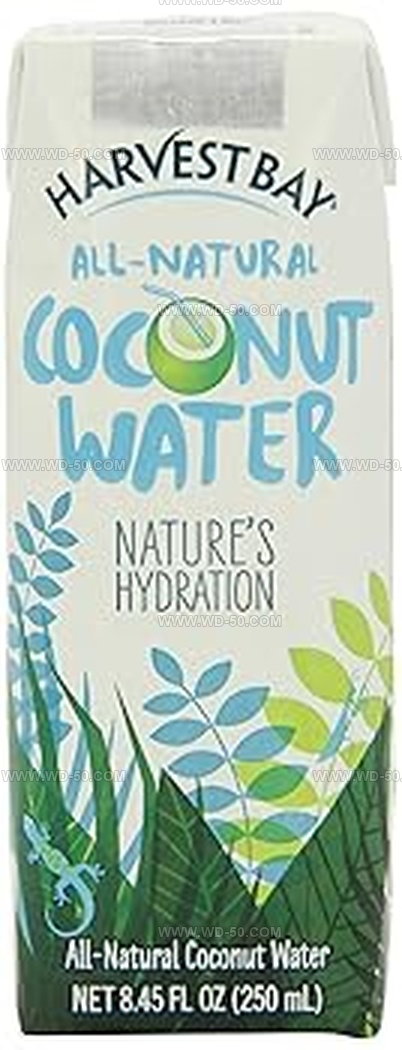
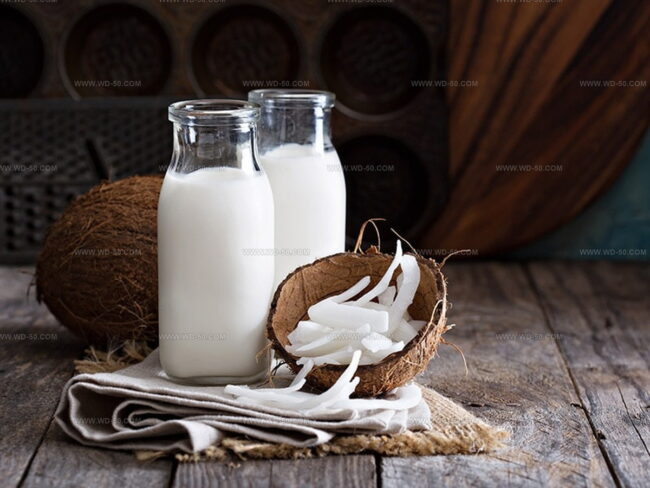
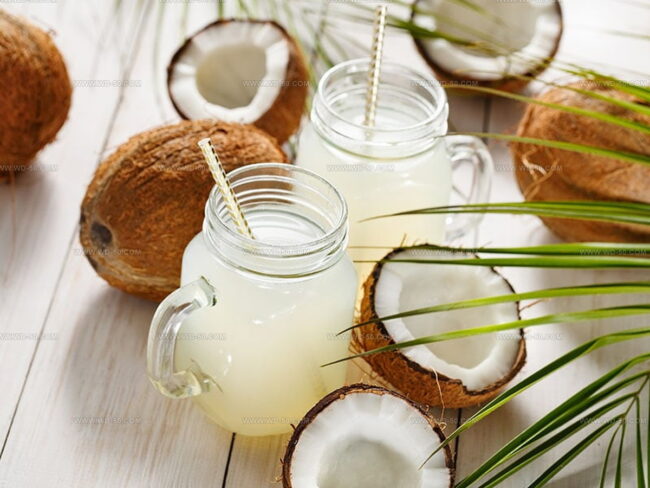
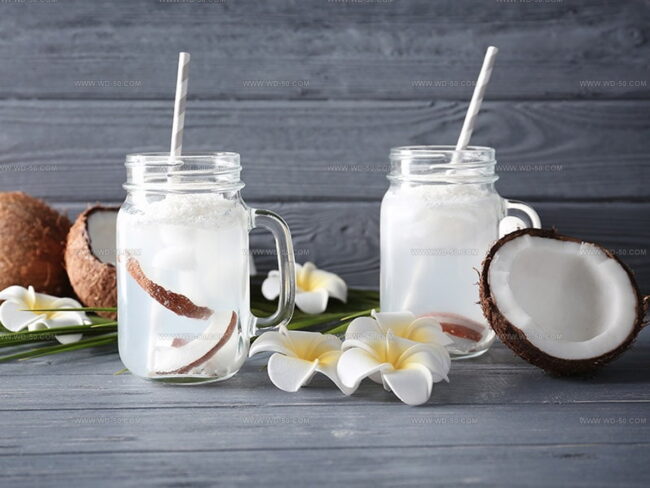
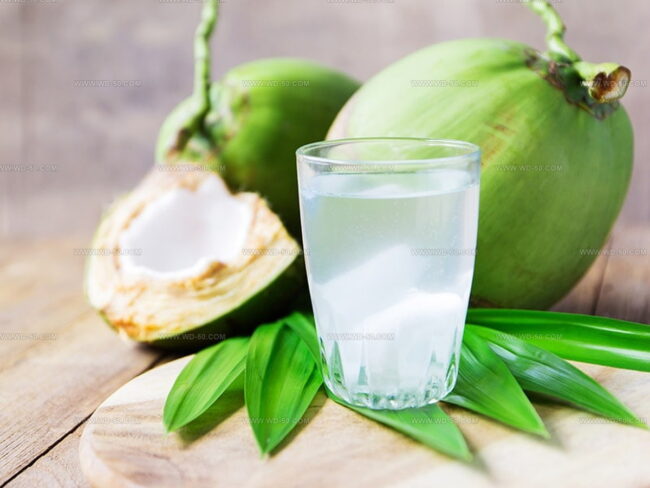
Michael Reynolds
Founder, Head Recipe Developer & Cuisine Specialist
Expertise
Recipe Development and Testing, Modern American and European Cuisines, Food Styling and Photography, Culinary Education and Workshops
Education
Johnson & Wales University
Auguste Escoffier School of Culinary Arts
Michael Reynolds is the founder and head recipe creator at wd-50.com. With over 15 years of experience in the kitchen, he’s spent time working in top restaurants and now focuses on making great food easy for everyone at home.
Michael studied culinary arts at Johnson & Wales University and later trained in pastry at the Auguste Escoffier School. He knows his way around both savory meals and sweet treats.
At wd-50.com, his goal is to help you feel confident in the kitchen, whether you’re trying something new or cooking a favorite dish. He loves using fresh ingredients and simple steps that still bring out big flavors.